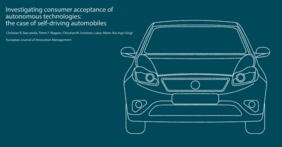Autonomous technologies represent an increasingly important, but at the same time controversial technological field with enormous potential. From a consumer perspective, however, the growing autonomy of technologies might result in a perceived loss of control, which can lead to consumer resistance. Given the practical and theoretical relevance, this research examines antecedents to consumer adoption of autonomous technologies in the context of self-driving cars.
Design/methodology/approach
This article looks through the lens of the technology acceptance model and conducts structural equation modeling.
Findings
The study validates the positive effect of perceived usefulness on behavioral intention to adopt self-driving cars. The results further suggest that individuals with a generally negative attitude toward technologies are afraid that they might not be capable of handling the new technology. Moreover, further mediation analyses reveal that perceived ease of use and perceived usefulness help us to explain the indirect effects of novelty seeking and technology anxiety on adoption intention.
Practical implications
The results imply that users' perceptions of an autonomous technology's usefulness are an important determinant of technology adoption. Adoption barriers could be overcome by emphasizing the usability of the new technology. On the other hand, individuals who enjoy using the old technology may be persuaded by arguments that focus on the usefulness of the new technology rather than its ease of use.
Originality/value
Self-driving automobiles will change our perception of mobility. It is important to understand the mechanisms that drive the adoption of such innovations.
Baccarella, C.V., Wagner, T.F., Scheiner, C.W., Maier, L. and Voigt, K.-I. (2020), "Investigating consumer acceptance of autonomous technologies: the case of self-driving automobiles", European Journal of Innovation Management, Vol. ahead-of-print No. ahead-of-print. https://doi.org/10.1108/EJIM-09-2019-0245


